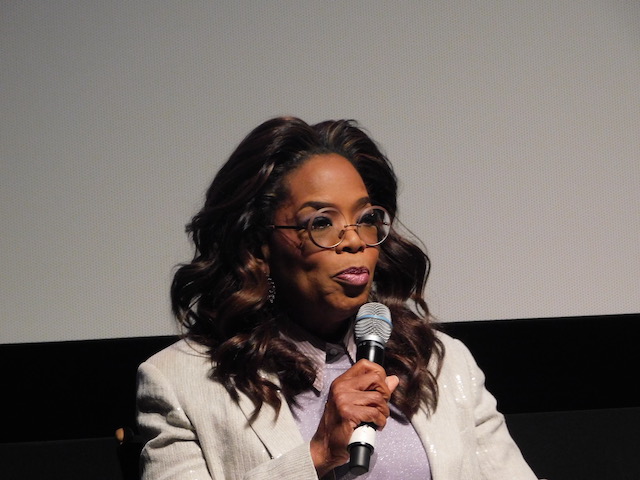
Synopsis : A story of love and resilience based on the novel and the Broadway musical, THE COLOR PURPLE is a decades-spanning tale of one woman’s journey to independence. Celie faces many hardships in her life, but ultimately finds extraordinary strength and hope in the unbreakable bonds of sisterhood.
Rating: PG-13 (Violence|Language|Sexual Content|Mature Thematic Content)
Genre: Musical, Drama
Original Language: English
Director: Blitz Bazawule
Producer: Oprah Winfrey, Steven Spielberg, Scott Sanders, Quincy Jones
Writer: Marcus Gardley
Release Date (Theaters): Wide
Box Office (Gross USA): $18.1M
Runtime:
Distributor: Warner Bros. Pictures
Production Co: Amblin Entertainment, Scott Sanders Productions, Harpo Films
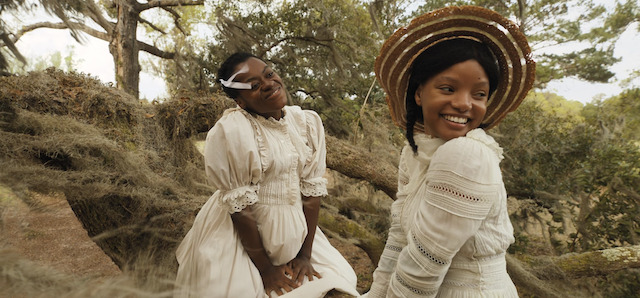
Q&A with Producers Oprah Winfrey, Scott Sanders, Director Blitz Bazawule, Actors Danielle Brooks, Taraji P. Henson
Q: What was it that you saw in that moment when you first read the story that enabled you to come back to it over and over and over again?
Oprah Winfrey: I saw myself in the story, dear God. I’m 14 years old. Please explain what’s happening to me. I was going through sexual assault from 9 to 14, asking God the same questions. I could not believe that there was a story in a book by Alice Walker that really had my name on it. It felt validating. By the end of the story, I felt a sense of hopefulness. I felt empowered by Celle’s story, her connection to Shug and Sophia. I know that everything that Alice Walker wrote down in that book back in 1982 when it was first released is still as vital today as it was.
Then we need hope and a sense of forgiveness in our lives. We need to believe that the power that is the life force of God is within each of us and we each can discover it. The message is even more relevant today as we become social media and we become AI and all of the things in technology in the world that take us away from the essence of ourselves. Again, for me, it was God’s timing that the book showed up when it did that, the movie showed up when it did that, the Broadway play showed up when it did and now we’re showing up for you again. It’s all, it’s all, it’s all, it’s all God’s got it.
Q: Scott, you used to work for Peter Gruber who bought the rights to the book that became the movie. You saw the musical in the book. Peter was like, “Ok, go ahead, you see it. I don’t necessarily see it.” What enabled you to see the musicality of this story and adapt it to Broadway and now, to put it onto the big screen? What was it in your relationship with the story or what you saw in that moment?
Scott Sanders: I had two moments that inspired me. One was that Celle is a character reading the book, I’ve never met a protagonist, fiction or nonfiction, that inspired me more than Celle. I couldn’t believe that this woman went through the headwinds that she went through in her life and not only found her own journey to find her own voice and to be seen and to be loved and to find love, but also had the grace to be so loving to Sophia and Harpo.
Harpo, who’s the son of the man doing all these things and Shug Avery. As a gay man, I was very moved by the Celle/Shug relationship and felt that it had room for exploration and continued to move further past that. The second thing that happened to me — this is a strange thing to say — but I’m old enough that I was in the first year of desegregation in Florida so I went to an all-black high school.
Oprah Winfrey: That’s the secret. I knew there was a black woman in there somewhere all this time.
Scott Sanders: I knew the joy of music, how music lived in the black culture and how, regardless of whatever you were going through, that music was a fuel, a spiritual energy to get through the day and through life. AAA and, and both of those things sort of inspired me to say this story has music in its soul. I feel like it should be on Broadway. There weren’t enough diverse shows being produced on Broadway. I ran Radio City Music Hall for a really long time, but I never produced on Broadway. And when I went in to do this, it was very naive. I just thought, well, we’ll just make a musical and you put a lot into it but that’s another story.
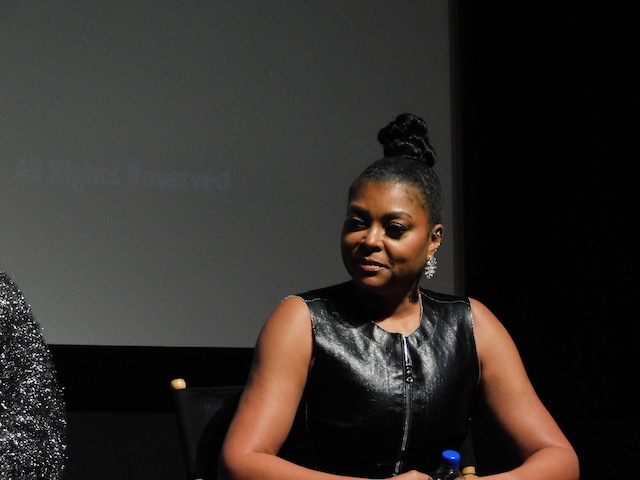
Q: Blitz, in re-imagining this for us, what was your pitch when you were on the Zoom screen with Steven, Oprah and Scott. The second question is, and it’s a little trickier in the book, we get access to Celle’s interior because it’s first person. It’s a letter writing, right? It’s an epistolary novel. In the movie, we get access through her imagination and her interior space. how does she go, how does her imagination become the external reality of the film? as we’re watching it, her awakening is happening. there has to be a shift. what was your pitch like, which is probably an answer to number two. how did you plot and plan to go from this really brilliant imagination that Celle has to, that becomes the dominant way that we understand this story.
Blitz Bazawule: About my pitch… Let me take a step back. I was incredibly nervous when my agent called and said they were reimagining “The Color Purple” and my name was in the mix. I was incredibly nervous because I know the power of”The Color Purple.” ,I know it’s sacred text. I know what it means to so many. I knew for a fact that if I had nothing to say, I probably just needed to back away and I was very, very nervous for a very long time, just trying to figure out how I’m going to get there if there was even an entry point for me.
I went back, I read Alice Walker’s book and, and you know, those very, very opening lines, you know, as, as Oprah said, you know, dear God, I’m 14 years old. For me, it was a reminder and a moment of clarity, That anyone who could write “Letters to God” definitely had an imagination, a sprawling imagination. My job was to figure out how to expand that imagination.
I grew up in Ghana; that’s where I’m originally from. I grew up in a household where my mom really championed the artistry that lived inside of me. She allowed me to be an artist and I drew a lot, painted a lot and that was my escape. It was in a household that was sometimes volatile, but was my refuge.
When I got this opportunity, I just went back to being this kid back in Ghana where any idea I had I would draw first and whenever I could draw it, I knew I could see it. If I could see it, then I could show it to others and hopefully they’d come on that journey with me. That’s where it began. I had the great opportunity to pitch to Scott, then Oprah and then Steven and then to the studio collectively. I was able to articulate Celle’s headspace and show how I intended to do it. I’ve heard the story about the text, the text that was going back and forth between y’all.
Oprah Winfrey: He was on a Zoom call, presenting Celle with the record, the whole thing that you all saw and her magic. I was like, “Whoa, who is this guy?” And I was texting him. By the end of the presentation we had texted, I said, “This is the guy, this is it. We’re done. I’m done with Zoom.”
Blitz Bazawule: That’s how I got the job. As it relates to this interior monologue, I really do believe that people who deal with trauma and abuse are often misjudged as docile, passive and waiting to be saved. I really believe that it’s false. I believe that for the first time, we were going to get the opportunity to see the machinations of how Celle overcame, right? It just doesn’t happen. It’s not a moment, it’s ongoing. She chooses to be brave every day figuring out how to love, who to love, figuring out how to forgive, figuring out how to escape her trauma and abuse. Those things were ongoing and I think that taking the audience along that journey added another layer as intended by Alice Walker. We were able to visually show how she was able to navigate that. I am really, really thankful that we were able to do that.
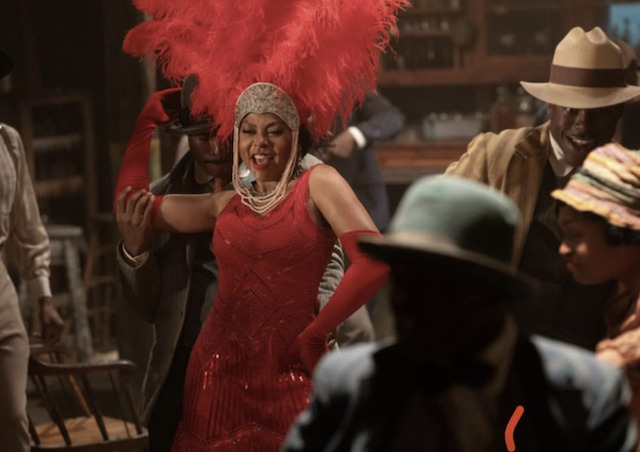
Q: Danielle, you’re returning to this character Sophia. There’s the arc that your character goes through: you come in with such power and boldness and defiance. Then you have to go through this decline when you’re imprisoned, beaten and then released. You have to rise again. how did you approach coming in with such explosive energy then have to suppress yourself and then come back up again. What was it like to have Madame Winfrey as a producer, who was; such an iconic Sophia what was that relationship like?
Danielle Brooks: This is crazy. I just get to look at her. Oh, man, I’ll start with that. When she called me on that Zoom and said, “Danielle, I’m passing the baton to you.” I knew at that moment it was a special day. My life was going to change and it has. Also, I was sharing with Blitz and Tara, they were there even if she didn’t call me, I don’t know if I would have felt the freedom to really bring myself to the role.
[To Oprah] I think you doing that [call] gave me the opportunity and permission to bring myself to the role. What you laid down when you did it in 1985 was masterful. It was a master class. When you asked me how I brought this character to life, I stole a lot from what you did. Okay? I really did. But when she did give me that permission, I knew that these were huge shoes to fill. But now, it was her saying you can be the cobbler of your own shoe; you can create your own shoe. That’s what I did.
I started with the book — Alice Walker’s words — and went deep into those words, every period, every comma, with that specificity. That’s where I love to live as an actor. Then, I went deep into Marcus Gardley and what he created as [“The Color Purple” screenwriter].
Yes, a shout out for what’s on the page there. Then it goes to Blitz, the director, giving me permission [to do what I did] because he hand-picked all of us. He knew what we were going to bring in and he trusted that we were going to bring it. When we actually got to [perform], he got out of the way. I’m so grateful for that because none of my choices were stifled. So, thank you Blitz. I don’t know if I’d be a Golden Globe nominee today if it were [otherwise].
When we talk about the arc of the character, it’s crazy. It’s like a dream for an actor. You want to be able to live in all of the layers of who this character is. Her ups and the downs, the hills, the valleys, the mountains, the laughter. At the end of the day, it was a lot of ancestry work for me. “Blood work” is what I call it — when you really have to lean on them [the ancestors]. There were times where the surrender was so deep that I felt like I had to truly listen to them — to all their cries and woes over everything that they’ve been through. I had to honor that.
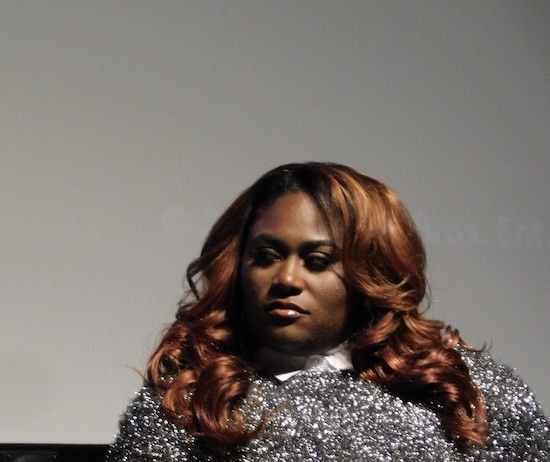
Q: The character of Shug embodies so much bravery, resilience, truth and triumph. Shug [expresses] the desires of so many of us. How did you approach being the character that everyone like Mister is desiring, that Celle is desiring and that we’re desiring. You have a musical theater background and do such a beautiful job singing those songs. How did you approach that? What were you afraid of? What did you do to make Shug so powerful for us?
Taraji P. Henson: Wow, my heart is pounding just like it was the day you called and said that you wanted me to be your Shug. When someone believes in you, you want to rise to the occasion for them. This man saw something in me that I didn’t see in myself. But she scared the hell out of me and that’s how I pick my characters because if the character doesn’t scare me, then what am I adding? What am I bringing?
Fear is something to overcome. If I can overcome the fear, then by playing this character, I’m being transformed. The audience has no choice but to transform. So I knew I had to do it because I was scared as hell. So I just went back into my, you know what I did in college, how I trained in college. It’s like riding a bike. You never forget.
I ran from music because I became a mother really young and the music industry was just dark to me. Spiritually, it was dark. There was no protection, there was no union. I’m a mother. I needed insurance. I need to make sure me and my baby are ok. I just didn’t want to go down that dark road. I headed west and went for my dreams another way and literally forgot about singing.
I’ll never forget before my father passed. He died like three days before I had to sing “It’s hard out here for a pimp” at the Oscars. We’re singing about pimps and hoes at the Oscars. But he said to me, and he saw this in me when I was really young, ‘You’re going to be one of the greatest actors alive. Wait until the world hears you sing.” I’m a very spiritual person. I believe somehow this is because of him that I ran from Shug on Broadway. I was so petrified. I was like, “I can’t pull that off. My voice will never survive eight shows a week, but she came back in the way that I could make her live and thrive.
Whatever Is destined for you, it’s going to come. That’s what I’m trying to say to you. I started listening to Bessie Smith. I found Ida Cox. Who said to me black women can’t sing the blues? I found the singer Pygmy Terry who talked about the black sheep’s blues. Now, you’re speaking to me about my character Shug. There were nights that I would lay in the tub with my bubbles, like that scene with the phonograph.
I would relive that scene, listening to these women sing to me their blues. I took on their blues and it became Shug’s blues. That’s how she was born. I have a thing where if I don’t feel it right away, I put the script down and I go talk to my dog — who thinks I’m crazy — if I don’t catch it right away. I don’t want a project unless the character speaks to me.
What we do as actors is very spiritual. You’re on set and that’s why I don’t pick a lot of roles because it’s spiritual and I’m alive. I’m open and my chakras are open and I’m letting this character use my body as a vessel to tell its truth. When I’m open like that, a lot of energy can’t be around me. I’m sorry, because energy is strong y’all. You have to be particular about who you keep around you.
I’m very particular about the projects that I take on because of that spirit, you understand, but I felt safe here because of the people and energies that [Blitz Bazawule] chose. I could not wait to meet them. I could not wait because I knew I was safe. in order to create and to be uninhibited, you have to feel safe and you created that space for me. I just did what I do. I looked at this script and I had a lot of people ask me, “Did you watch the old one?” No, because I’m a great mimic, I mimic really well. I know that about me and my instrument so I could not watch it. I left it in its classical place in the canon and treated this script like any other script I get. It was brand new. It was fresh.
The exciting part was that a black man was telling this story. Now, we get to own our narrative and listen, Y’all know, I’ve been doing this [awhile] and I’ve told a lot of incredible African American stories. But there’s a difference when we get to tell the story and that’s what you see and feel coming off the screen. We aren’t downtrodden [now]. We have had so much happen to us.
We turn our trauma into celebration. Hush puppies were used to keep the slave trappers from us and what we do is dip those hush puppies in our black eyed peas and do the electric slide, eating our trauma. That’s who we are as a people and that’s what you displayed. It’s upbeat, vibrant, colorful and that’s why so much healing is going to come from this “Color Purple” because it’s time, black people, time to heal.
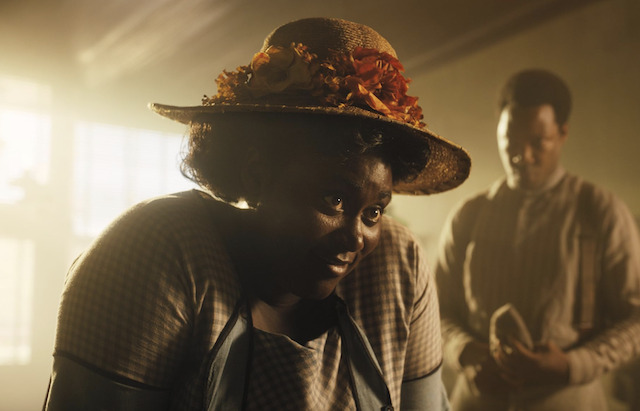
Q: When the movie originally came out, it was beautiful and amazing with stunning performances but there was a deep backlash against Alice Walker. She was the most hated black woman in America at the time when the movie came out. and you were there, You were part of the movie.
Oprah Winfrey: I was there going into the Oscars with 11 nominations. The NAACP was standing outside protesting as we went in. It was a really challenging time. I remember being on the set and Quincy Jones was saying that the NAACP, the Urban League, all of these black leaders were demanding to have the script and demanding [that we] have meetings with them.
They would not hand over the script nor would Alice Walker. Did she want that to happen? It was a lot of pressure and my position then was that this was one story and Alice certainly had the right to tell it. This represented one segment of our population, of what happened with black women and men. It wasn’t every story and I obviously really deeply appreciated the original because it changed my life in so many ways. nobody says anything about the original to me.
Q: The two things that were controversial at the time were, of course, Celle and Shug’s love and the depictions of domestic violence and sexual violence. Now, we’re in a different moment where we can…
Oprah Winfrey: I think of the hours that were spent in 1985 talking about that kiss [between Celie & Shug].
Q: This is another healing moment for all of you who went through the…
Oprah Winfrey: What is so great is that now we have the Deltas who are having their own purple carpet and the Divine Nine who are all joining in and the NAACP. Everybody who before was questioning and not at all in, they’re all in [this time] and it’s just wonderful to have this kind of support.
Q : It speaks to the prophetic vision that Alice Walker had…
Oprah: And to her endurance…
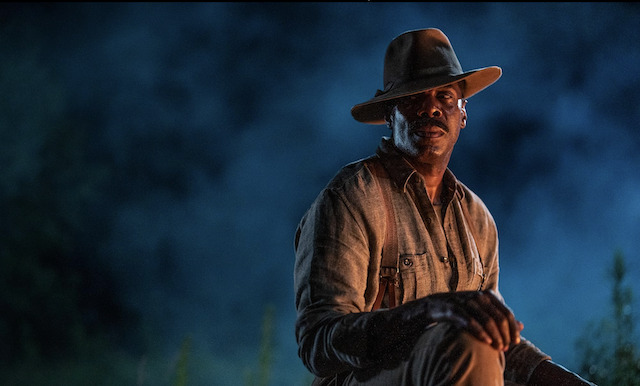
Check out more of Nobuhiro’s articles.
Here’s the trailer of the film.

